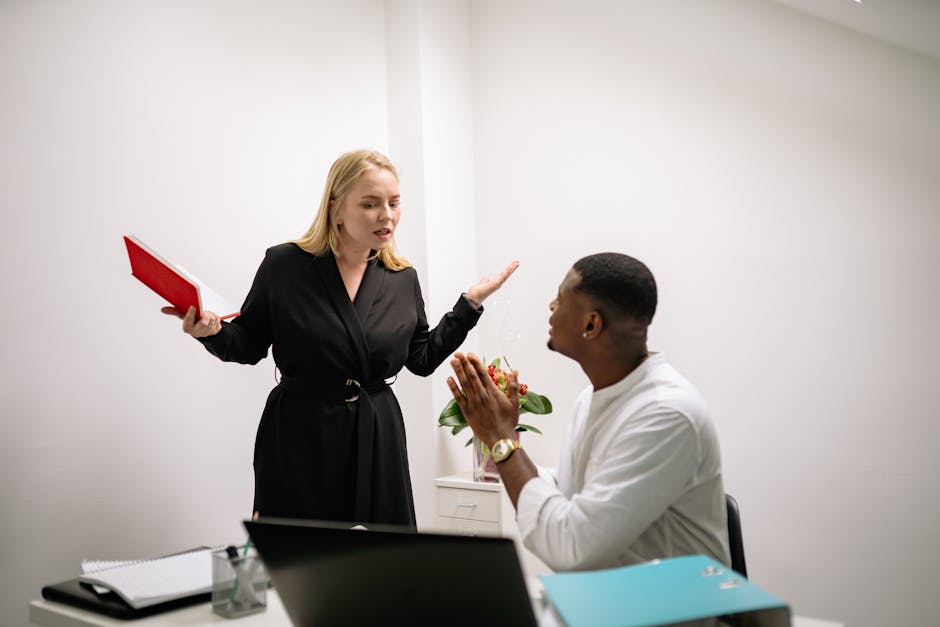Handling conflicts without damaging a friendship might feel like walking a tightrope, but it’s entirely possible with the right approach. Friendships are precious, and disagreements, while inevitable, don’t have to spell disaster. If you’ve ever wondered how to navigate these tricky waters, keep reading. This guide will help you preserve your bond while addressing issues head-on.
Key Takeaways
- Conflicts are normal in friendships and can even strengthen your bond if handled well.
- Effective communication is the cornerstone of resolving disagreements.
- Empathy and self-awareness are essential tools for maintaining harmony.
- Boundaries and mutual respect can prevent future misunderstandings.
Understanding the Nature of Friendship Conflicts
Normalizing Friendship Problems
Recognizing that conflicts are a natural part of relationships
No friendship is perfect. Even the closest friends will occasionally clash. Disagreements arise because we’re all unique individuals with different perspectives, emotions, and experiences. Instead of fearing conflict, view it as an opportunity to grow and understand each other better.
Understanding the value of addressing issues
Ignoring problems doesn’t make them disappear—it’s like sweeping dust under a rug. Eventually, it piles up. Addressing conflicts head-on shows that you value the friendship enough to work through the tough stuff.
Common Causes of Friendship Conflicts
Miscommunication and misunderstandings
Ever sent a text that was taken the wrong way? Miscommunication is a leading cause of conflict. Tone, intent, and context can easily get lost, especially in digital conversations.
Differences in priorities or values
Friends don’t always see eye-to-eye on what’s important. Maybe one of you values punctuality while the other is more laid-back. These differences can create friction if not acknowledged.
Competitive or judgmental behavior
Sometimes, jealousy or judgment sneaks into friendships. Whether it’s comparing achievements or criticizing choices, this behavior can strain even the strongest bonds.

Preparing to Address the Conflict
Taking a Pause Before Reacting
Avoiding impulsive responses
When emotions run high, it’s tempting to fire off a snarky comment or give the silent treatment. But knee-jerk reactions often escalate the situation. Take a moment to breathe and collect your thoughts.
Reflecting on your emotions and intentions
Ask yourself: Why am I upset? What do I hope to achieve by addressing this? Understanding your feelings can help you approach the conversation with clarity and purpose.
Getting Curious About the Root Cause
Identifying underlying issues
Sometimes, the real problem isn’t what it seems. Maybe you’re upset about a canceled plan, but deep down, you feel unappreciated. Digging deeper can reveal the true source of tension.
Considering the other person’s perspective
Put yourself in your friend’s shoes. What might they be feeling? Empathy can soften your approach and pave the way for a more productive discussion.

Communicating Effectively During Conflict
Approaching the Conversation with Empathy
Using “I” statements to express feelings
Instead of saying, “You never listen to me,” try, “I feel unheard when I share my thoughts.” This shifts the focus from blame to your emotions, making your friend less defensive.
Avoiding blame or accusations
Pointing fingers only fuels the fire. Stick to discussing your feelings and observations rather than assigning fault.
Listening Actively and Openly
Giving your friend space to share their thoughts
Let your friend speak without interrupting. Sometimes, just feeling heard can defuse tension.
Clarifying misunderstandings through questions
If something doesn’t make sense, ask for clarification. For example, “When you said that, did you mean…?” This shows that you’re genuinely trying to understand their perspective.
Maintaining a Focus on Resolution
Keeping the goal of preserving the friendship in mind
Remember, the goal isn’t to “win” the argument—it’s to strengthen your bond. Keep this in mind throughout the conversation.
Collaborating on solutions
Work together to find a resolution that feels fair to both of you. This might involve compromises or setting new boundaries.

Taking Responsibility and Moving Forward
Owning Your Part in the Conflict
Acknowledging mistakes or missteps
Nobody’s perfect. If you’ve contributed to the conflict, own up to it. A simple, “I realize I could’ve handled that better,” can go a long way.
Apologizing sincerely when necessary
A heartfelt apology can mend a lot of wounds. Be genuine and specific about what you’re sorry for.
Deciding What the Friendship Needs Next
Setting boundaries or expectations if needed
If certain behaviors led to the conflict, discuss how to avoid them in the future. For tips on this, check out this guide on setting healthy boundaries.
Reaffirming your commitment to the friendship
Let your friend know that you value them and are committed to moving forward together.

Navigating Specific Friendship Challenges
Feeling Unprioritized in the Friendship
Communicating your needs respectfully
If you feel like you’re not a priority, express this calmly. For example, “I miss spending time with you. Can we plan something soon?”
Understanding your friend’s perspective
They might be juggling other responsibilities. Try to understand their situation before jumping to conclusions.
Dealing with Competitive or Judgmental Behavior
Addressing the behavior without escalating tension
If your friend’s comments feel hurtful, address it gently. “I felt a bit hurt when you said that. Can we talk about it?”
Reinforcing mutual respect and support
Remind each other that friendship is about lifting each other up, not tearing each other down.
Managing Conflicts Over Differing Opinions or Interests
Agreeing to disagree on less critical matters
Not every disagreement needs a resolution. Sometimes, it’s okay to say, “We see this differently, and that’s okay.”
Finding common ground to strengthen the bond
Focus on shared interests or values to remind yourselves why you’re friends in the first place.
Handling Major Disagreements
Evaluating the impact on the friendship
Ask yourself: Is this issue worth jeopardizing the friendship? If not, consider letting it go.
Deciding whether compromise is possible
If the disagreement is significant, work together to find a middle ground.

Transforming Conflicts into Opportunities for Growth
Learning from the Experience
Identifying lessons for future interactions
Every conflict teaches us something. Reflect on what you’ve learned and how you can apply it moving forward.
Strengthening communication skills
Conflict resolution is a skill. The more you practice, the better you’ll get at it.
Building a Stronger Friendship
Deepening trust through resolution
Working through tough times can deepen trust and make your friendship even stronger.
Celebrating the resilience of the relationship
Take a moment to appreciate how far you’ve come. Celebrate the fact that your friendship survived and thrived.
When Conflict Signals a Need for Change
Recognizing When a Friendship May Be Unhealthy
Identifying patterns of toxicity or imbalance
If conflicts are constant or one-sided, it might be a sign of an unhealthy dynamic.
Considering the impact on your well-being
Your mental health matters. If a friendship consistently drains you, it might be time to reevaluate.
Deciding Whether to Mend or End the Friendship
Evaluating the potential for resolution
Ask yourself: Is this friendship salvageable? If both parties are willing to work on it, there’s hope.
Respectfully parting ways if necessary
Sometimes, the healthiest choice is to let go. For more insights, check out this article on managing emotions during conflict.

Friendship conflicts don’t have to be the end of the road. With empathy, communication, and a willingness to grow, you can turn disagreements into stepping stones for a stronger bond. After all, the best friendships aren’t the ones without conflict—they’re the ones that survive and thrive despite it.
For more strategies on maintaining strong friendships, visit this resource.
Happy conflict-resolving!
FAQ: Navigating Conflicts Without Losing Friendships – A Gentle Guide
Why is it important to address conflicts in friendships?
Addressing conflicts is crucial because unresolved issues can lead to misunderstandings, resentment, or even the end of a friendship. Open communication helps strengthen trust and ensures both parties feel heard and valued, fostering a healthier bond.
How can I approach a friend about a conflict without making them defensive?
Start by choosing a calm and private setting. Use ‘I’ statements to express your feelings rather than placing blame, such as ‘I felt hurt when…’ instead of ‘You always…’ This approach minimizes defensiveness and encourages constructive dialogue.
What are some common mistakes to avoid during a conflict with a friend?
Avoid raising your voice, interrupting, or bringing up past grievances. These behaviors can escalate tensions. Instead, focus on the current issue, listen actively, and aim for a solution rather than assigning blame.
How can I ensure my friend feels heard during a disagreement?
Practice active listening by giving them your full attention, nodding, and paraphrasing their points to show understanding. Avoid interrupting and validate their feelings, even if you don’t fully agree with their perspective.
What should I do if my friend refuses to talk about the conflict?
Respect their need for space but gently express your willingness to talk when they’re ready. Send a kind message reaffirming your care for the friendship and your desire to resolve the issue when the time feels right for them.
How can I maintain my emotions during a heated discussion?
Take deep breaths and remind yourself of the importance of the friendship. If emotions run high, suggest taking a short break to cool down and revisit the conversation later with a clearer mindset.
What if we can’t agree on a solution to the conflict?
It’s okay to agree to disagree on certain matters. Focus on finding common ground and reaffirming your mutual respect and care for each other. Not all conflicts require a perfect resolution to maintain a strong friendship.
How can I rebuild trust after a conflict with a friend?
Rebuilding trust takes time and consistent effort. Apologize sincerely if needed, follow through on promises, and demonstrate your commitment to the friendship through your actions. Patience and understanding are key.
Is it ever okay to end a friendship after a conflict?
Sometimes, conflicts reveal deeper incompatibilities or unhealthy dynamics. If attempts to resolve the issue fail and the friendship becomes toxic or one-sided, it may be healthier to part ways respectfully and with closure.
How can I prevent future conflicts in my friendships?
Maintain open and honest communication, set clear boundaries, and regularly check in with your friend about how they’re feeling. Cultivating mutual respect and understanding can help prevent misunderstandings from escalating into conflicts.



